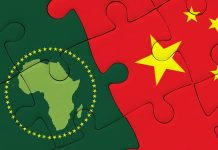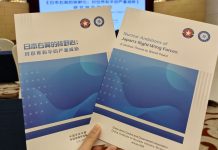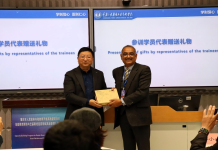BEIJING: After a drawn-out slog of eight years, the long-awaited Regional Comprehensive Economic Partnership (RCEP), the world’s biggest free trade pact measured in terms of GDP was sealed by 15 Asia-Pacific nations on November 15.
It covers nearly a third of the world’s population and about 30 percent of global GDP. It also includes free trade agreements between China and Japan, Japan and South Korea, which significantly upgrade free trade in the region.
As the world’s second and third largest economies, China and Japan reducing tariffs and beefing up economic and trade partnerships are highlights in the agreement.
China’s Ministry of Finance called the agreement between China and Japan a historic breakthrough, while the Ministry of Commerce stated that this is the first time that China has inked a free trade agreement with the world’s top 10 economies.
With new business ties shaping up through RCEP, the country’s trade coverage with free trade partners is poised to climb from the current 27 percent to 35 percent.
According to the Japanese side, the proportion of Japanese products that China will eventually exempt tariffs is set to skyrocket from 8 percent to a staggering 86 percent, while Japan’s duty-free ratio for Chinese products will also reach the same level.
On November 15, the Ministry of Foreign Affairs of Japan published on its website the text of the RCEP agreement and the annex to the tariff reduction rules, which spells out in detail the tariff concession rules for a slew of commodities.
In the field of agriculture, forestry and fishery products, China’s tariffs on sake, whiskey, scallops, rice crackers, self-heated rice and other products imported from Japan will be reduced to zero over a period of time. At the same time, tariffs on Japan’s imports of rice wine, matsutake and other products from China will also be gradually canceled.
Currently, China levies a 40 percent tariff rate on sake and 10 percent on whiskey.
As Japanese cuisine gains incremental popularity in China, the second largest economy’s imports of Japanese alcohol have been on a steep rise over the years.
–The Daily Mail-CGTN News exchange item






